The 2017 style chapter isn’t likely to be only about social media transforming how we buy fashion. It will also speak about how fashion will be impacted by major world happenings
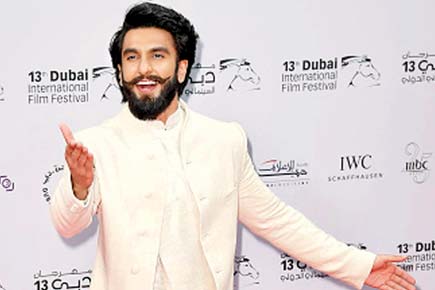
The 2017 style chapter isn’t likely to be only about social media transforming how we buy fashion. It will also speak about how fashion will be impacted by major world happenings, whether Brexit, Donald Trump’s shocking win or Modi’s demonetisation. Fashion, after all, is deemed an indulgence. Expect restoration of pared-down ensembles, mix-and-match dressing that makes the most of what you already have, a gender-blurring mood-board and revisiting loyalties.
ADVERTISEMENT
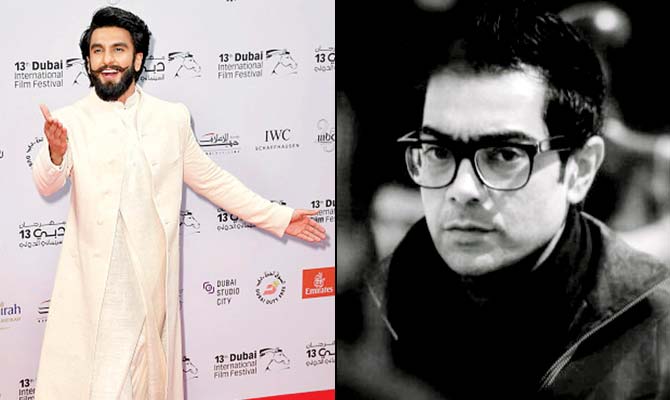
(Right) Ranveer Singh wears Arjun Saluja’s deconstructed sherwani and kurta with sharara. Pic/Getty Images
It’s the year of the neo-dandy
Arjun Saluja, menswear designer
Mood: The diminishing of sub-cultures means that menswear is finding its own expression and language, steering it in the direction of what I call the neo-dandy style. Technology has robbed us of connecting with the next person, hence, clothing will be about expression and emotion and connect.
Silhouettes: Modern athleisure shapes will be seen in deconstructed kurtas, drop-crotch drape trousers, Hakama trousers (skirt-like trousers typically worn by Japanese martial artists) and wrap jackets.
Colours: We’ll see a lot of deep beige, rich and inky blues, spicy burgundy, and yellow and green.
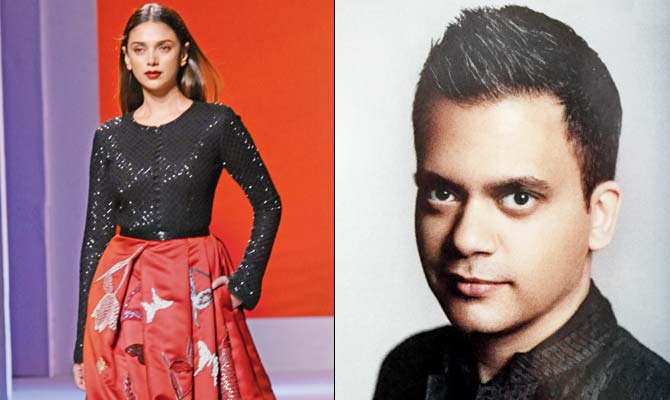
Nachiket chose a linear silhouette, with a cut inspired by monks’ robes
Mood will be quiet; highlight on surface textures
Nachiket Barve, designer
Mood: It will sit somewhere between quietness and introspection. Global events like Brexit and Trump’s win, and demonetisation back home, will make us look at fashion as something beyond instant gratification.
Silhouettes: Think clothes with an ability to multitask — timely and timeless. Intuitive mix and match is the keyword. Long, layered shapes in tunics, long jackets, bias cut dresses, tunics with discreet tailoring etc., will find a voice.
Colours: I see a mixed bag — a muted palette meets deep after-dark shades.
Surface textures: Innovation will originate from the fabric itself, taking the form of applique, tonal and textural embroidery.
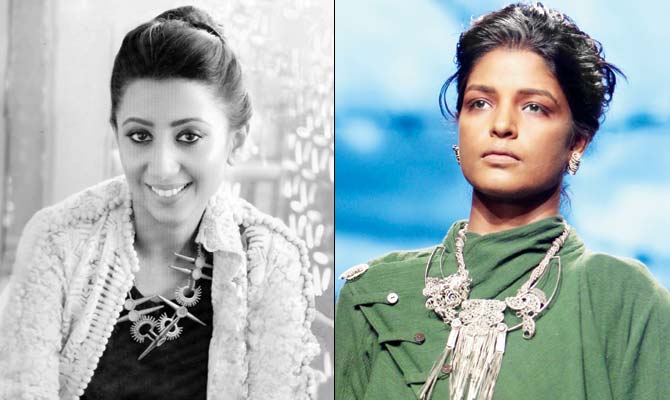 A jewellery piece dsigned by Suhani Pittie worn around the bicep
A jewellery piece dsigned by Suhani Pittie worn around the bicep
Trinkets will speak of loyalty
Suhani Pittie, jewellery designer
Mood: The mood is one of allegiance to what you believe in. I’m inspired by the historic, vintage and retro. So, it could be loyalty to your city, family, or support for people of war-torn nations, or love for your country shown with a simple flag pin.
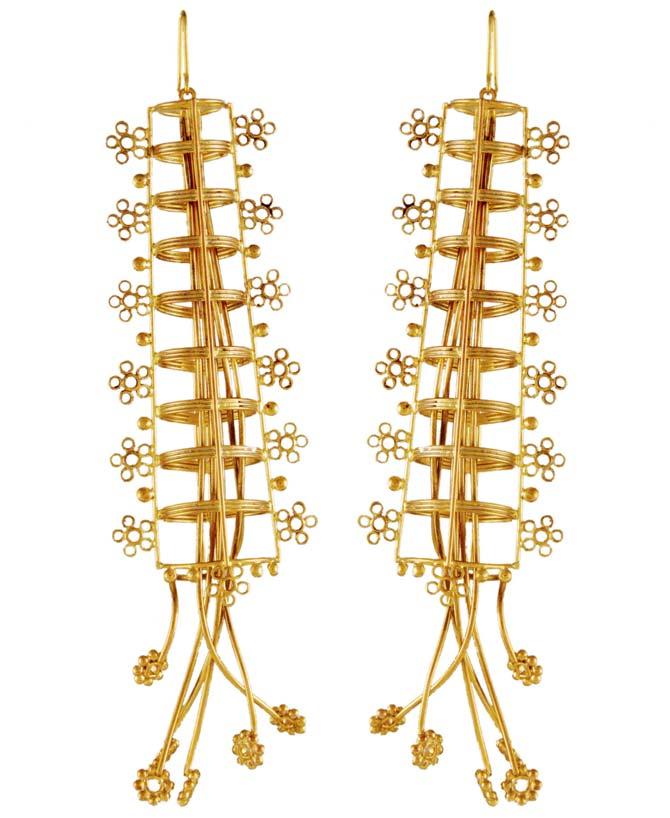
What to expect: I draw on vintage through nostalgia. My new line, Dooi (‘two’ in Bengali) celebrates completing two decades in the industry, and it traces my Kolkata roots. The collection has a reference to the stained glass and window grills of old homes in the Burra Bazar area. Also, the focus on handmade continues. Buying handcrafted goods means you support local craftsmen.
Materials: You’ll see acrylic, minerals, quartz, wood and thread tassels — whatever adds a bit of whimsy to the central focal point of the jewellery. Pearls are going to be another highlight.
Statement pieces: For women, pendants and hoops will draw attention. Cuffs and bracelets worn over the arms are a great way to pull off an unconventional look. For men, too, all of the above apply — whether it’s wearing an old beaten money clip, collar buttons or cufflinks with a favourite architectural reference.
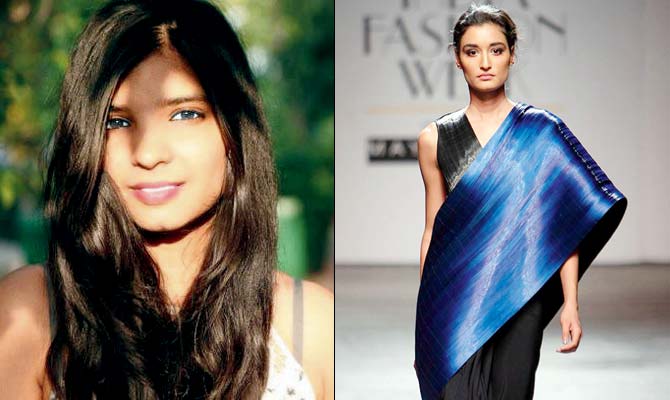
(Right) The sari Sonam Kapoor wore at Cannes in May 2016
Sari, traditional and new-age, will gain prominence
Rimzim Dadu, designer
Mood: It will be about extremes. I envision traditional saris becoming fashionable along with fun, cool, inventive versions of pre-stitched saris worn with playful cholis.
Drape: I was quite surprised that Sonam Kapoor wore my sari to a media meet at Cannes in 2016. It was laborious to make, and the pallu was woven with hair thin steel yarn. The innovation was to make it light despite the use of steel. Depending on the way you drape it, a sari takes on a soft and fluid appearance or a structured, architectural form. In the past, I have created the Jamdani effect using silicon, and the Patola weave with leather. I hope to push the boundary some more.
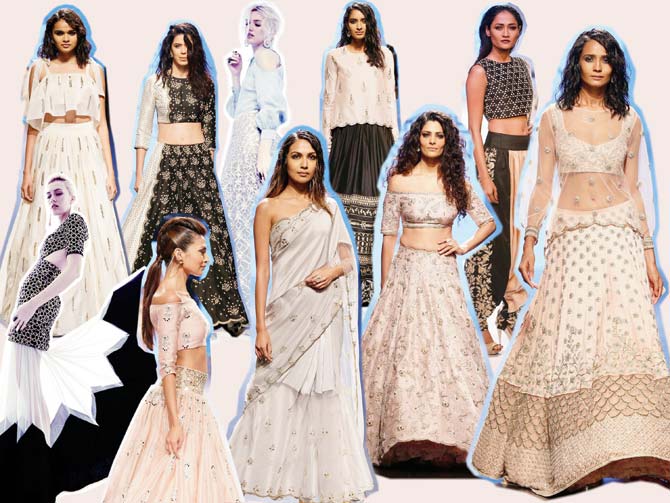
The bride is no longer demure
Payal Singhal, bridal designer
Mood: It’s all about attitude. Goodbye demure, welcome the rockstar bride. Bridalwear will get bolder, and I don’t mean provocative, but experimental.
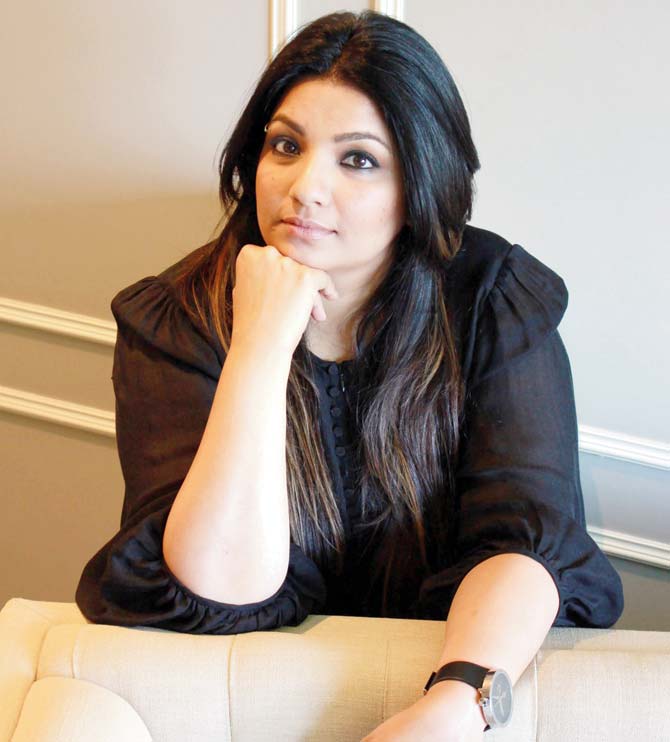
Silhouettes: We may borrow inspiration from different decades, a mishmash of sort. Shapes will defy boundaries. You could wear a jacket with power shoulders (replacing the choli) and a lehenga.
Colours: Bright, including high-voltage neons. Expect striking colour-blocking — fuchsia with vermilion.
Surface textures: Rather than head-to-toe embroidery, the emphasis will be on minimal threadwork using innovative raw materials like leather, 3D metallic sequins and gold foil. Instead of pretty, prints will get in-your-face.
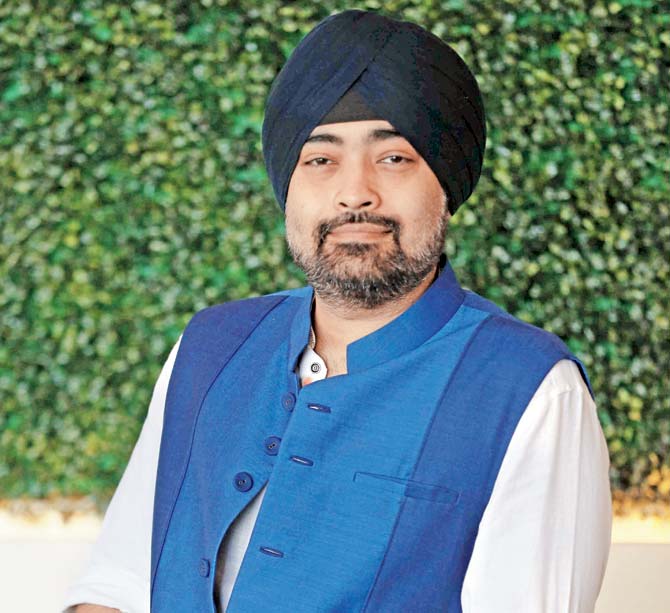
Fashion Week will move from March to February
Jaspreet Chandok, Vice President, Head-Fashion, IMG Reliance
Brink of change: The Fashion Week format, globally, is undergoing a change with more brands showcasing ‘in-season’ rather than the next season’s ware. Lakme Fashion Week (LFW) has, however, been showcasing collections that are ‘in-season’ for the last few years. The new buzz phrase is “See now, Buy Now”.
What to expect: The dates for LFW this season have moved by over 45 days, from February 1 to 5, for the Summer-Resort 2017 edition. It’s to provide a greater window for designers to have their collections in stores. Last season saw many firsts, including the theme of inclusion through our ‘North East’ and ‘Plus size’ initiatives. We plan to take this inclusiveness forward.
 Subscribe today by clicking the link and stay updated with the latest news!" Click here!
Subscribe today by clicking the link and stay updated with the latest news!" Click here!







